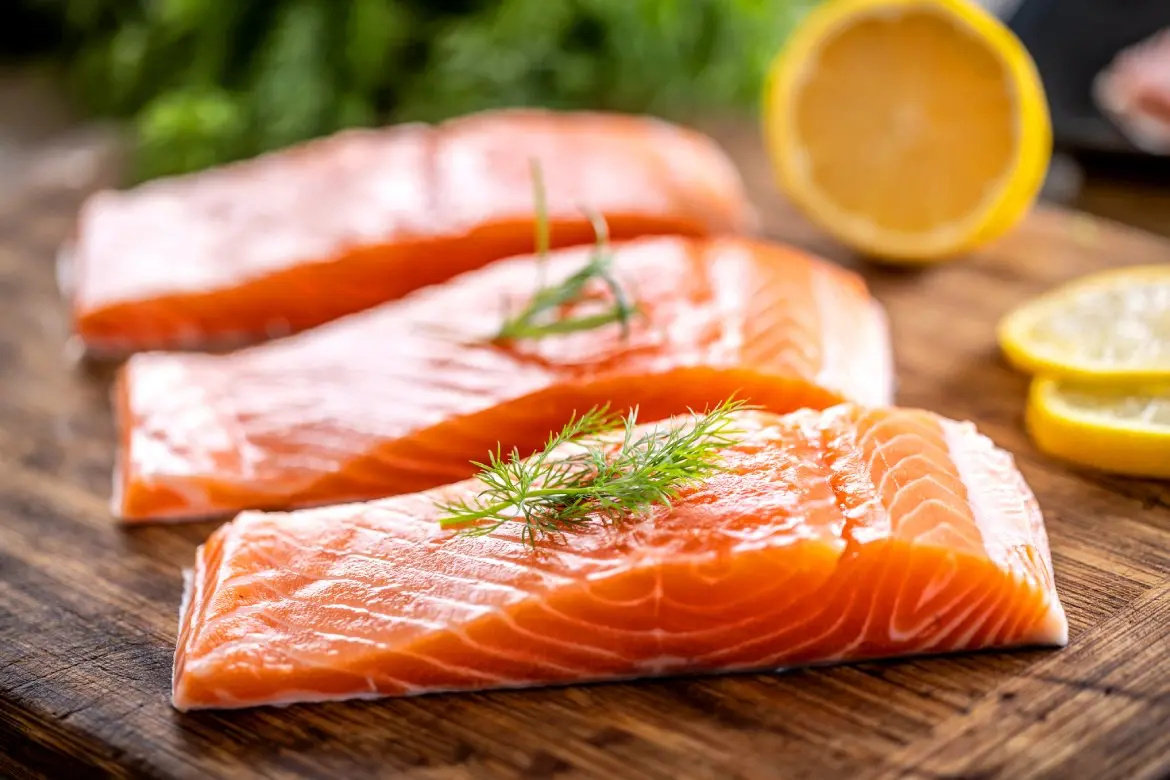Salmon, a popular type of fish, is renowned for its rich flavor, firm texture, and nutritional value. It is a versatile ingredient that can be enjoyed in various culinary preparations, from grilling and baking to smoking and canning.
Nutritional Benefits
Salmon is a rich source of omega-3 fatty acids, which are essential for good health. These healthy fats have been linked to numerous benefits, including:
- Heart health: Omega-3 fatty acids can help lower blood pressure, reduce the risk of heart disease, and improve cholesterol levels.
- Brain health: Omega-3 fatty acids are essential for brain development and function. They have been shown to improve memory, cognitive function, and mood.
- Eye health: Omega-3 fatty acids are also beneficial for eye health. They can help protect against age-related macular degeneration and dry eye syndrome.
In addition to omega-3 fatty acids, salmon is also a good source of protein, vitamin D, B vitamins, and minerals.
Types of Salmon
There are several different types of salmon, each with its own unique flavor and texture. Some of the most popular types of salmon include:
- Atlantic salmon: This is the most common type of salmon found in supermarkets and restaurants. It is typically farmed, but wild Atlantic salmon is also available.
- Sockeye salmon: Sockeye salmon is known for its bright red color and rich flavor. It is often considered to be the best-tasting type of salmon.
- Coho salmon: Coho salmon is another popular type of salmon. It has a milder flavor than sockeye salmon and is often canned.
- Pink salmon: Pink salmon is a smaller type of salmon that is often canned. It has a mild flavor and is a good source of omega-3 fatty acids.
- King salmon: King salmon is the largest type of salmon and is known for its rich flavor. It is often grilled or baked.
Cooking Salmon
Salmon is a versatile fish that can be cooked in many different ways. Some popular cooking methods include:
- Grilling: Grilling salmon gives it a smoky flavor and a crispy exterior.
- Baking: Baking salmon is a healthy and easy way to cook it.
- Poaching: Poaching salmon in a flavorful broth or court bouillon is a gentle cooking method that preserves the fish’s delicate flavor.
- Smoking: Smoking salmon gives it a rich, smoky flavor.
- Curing: Curing salmon is a preservation method that involves brining the fish in a salt-based solution.
Pairing Salmon
Salmon pairs well with a variety of flavors and textures. Some popular pairings include:
- Vegetables: Asparagus, broccoli, and roasted vegetables are all good complements to salmon.
- Sauces: Lemon-dill sauce, chimichurri sauce, and teriyaki sauce are all delicious ways to flavor salmon.
- Spices: Herbs like dill, parsley, and thyme complement the flavor of salmon.
- Sides: Salmon can be served with rice, potatoes, quinoa, or a salad.
Conclusion
Salmon is a nutritious and delicious fish that can be enjoyed in many different ways. Whether you are grilling it for a summer barbecue or baking it for a weeknight dinner, salmon is a versatile and flavorful option that is sure to please your taste buds.
